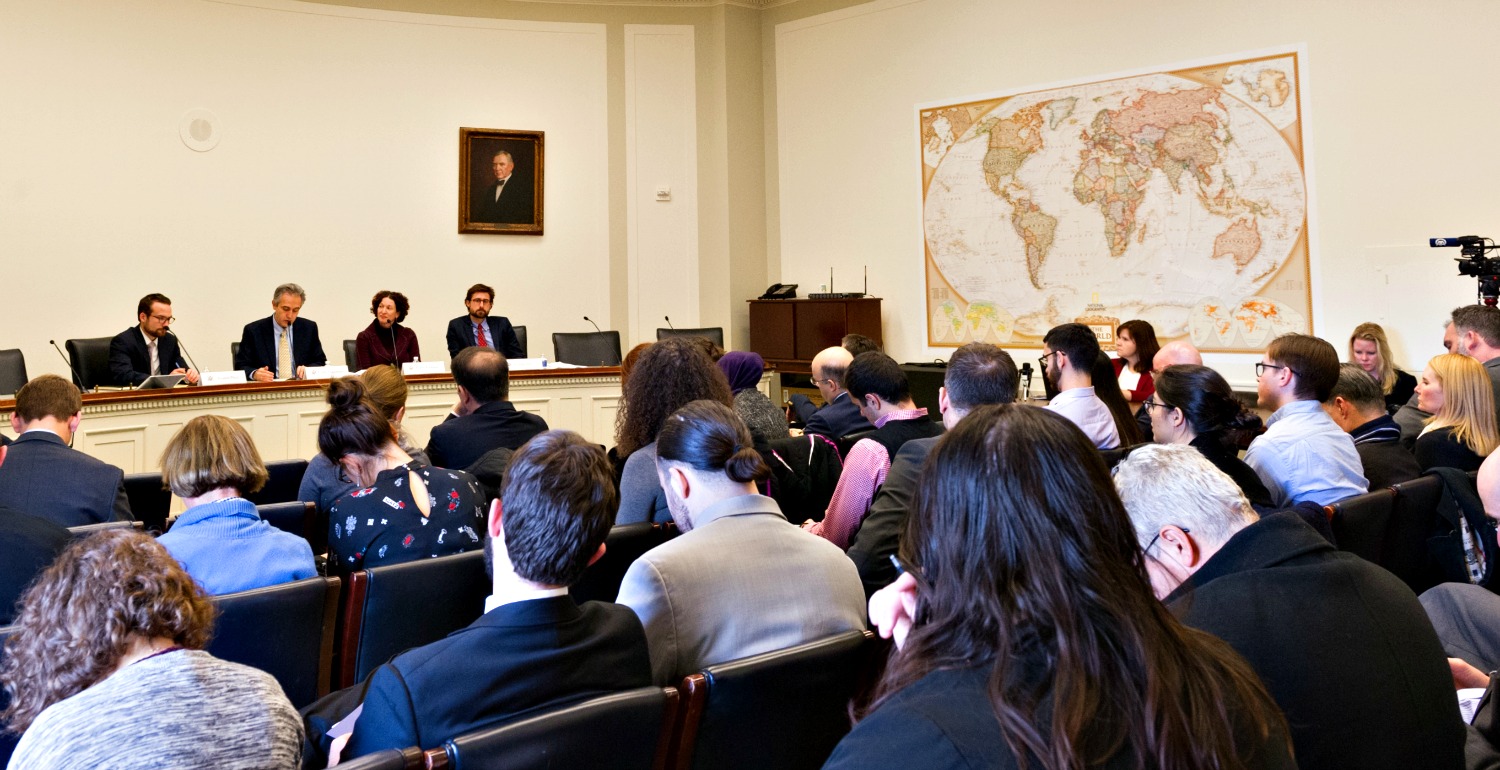Five months after the failed coup attempt of July 15th, 2016, serious questions have emerged with regard to the future of democracy and the rule of law in Turkey. The Turkish government maintains sweeping state of emergency decrees, which have shuttered educational institutions, civic associations, and media organizations. Tens of thousands of people have been arrested, suspended, or fired for colluding with coup plotters, a determination often made with little to no credible documentation. In the wake of this ongoing crackdown, the Helsinki Commission convened a briefing to examine Turkey’s deteriorating human rights conditions and the future of U.S.-Turkey relations.
Helsinki Commission staff member Everett Price opened the briefing by recalling the Commission’s original mandate, its fundamental mission to shed light on human rights violations, and the importance of candor in fostering friendly international relations. Dr. Y. Alp Aslandogan, Executive Director of the Alliance for Shared Values, provided a detailed description of the government’s post-coup persecution of the Hizmet movement, minority groups such as the Kurds and Alevis, journalists, and teachers. Dr. Karin Karlekar, Director of the Free Expression Advocacy Team at PEN America, shed light on the Turkish government’s intensified suppression of press freedom and free expression in the wake of the failed coup attempt. Finally, Dr. Nicholas Danforth, Senior Policy Analyst at the Bipartisan Policy Center, assessed the risks posed by the Turkish government’s disregard for the rule of law and their potential implications for U.S.-Turkey relations.
In the subsequent exchange of views moderated by Everett Price, the panelists reflected on the international community’s role in promoting human rights, threats to academic freedom, and the potential for a renewed democratic trajectory in Turkey.





